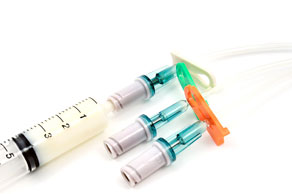 The FDA may require biological evaluation of medical devices to determine the potential toxicity resulting from contact of the component materials of the device with the body. According to the FDA, the device materials should not, either directly or through the release of their material constituents:
The FDA may require biological evaluation of medical devices to determine the potential toxicity resulting from contact of the component materials of the device with the body. According to the FDA, the device materials should not, either directly or through the release of their material constituents:
- produce adverse local or systemic effects;
- be carcinogenic;
- produce adverse reproductive and developmental effects.
The appropriate tests for biological evaluation of a medical device is determined by the chemical characteristics of device materials and the nature, degree, frequency and duration of its exposure to the body. In general, the tests may include: acute, sub-chronic and chronic toxicity; irritation to skin, eyes and mucosal surfaces; sensitization; hemocompatibility; genotoxicity; carcinogenicity; and, effects on reproduction including developmental effects. Additional tests may be necessary for some devices.
The International Standards Organization (ISO) developed a standard for biological evaluation of medical devices (ISO 10993) to evaluate the effects of medical device materials on the body. This standard provides guidance for selecting the tests to evaluate the biological response to medical devices, and appropriate methods to conduct the biological tests.
For more information on regulation of medical devices, please refer to Stewardship.
